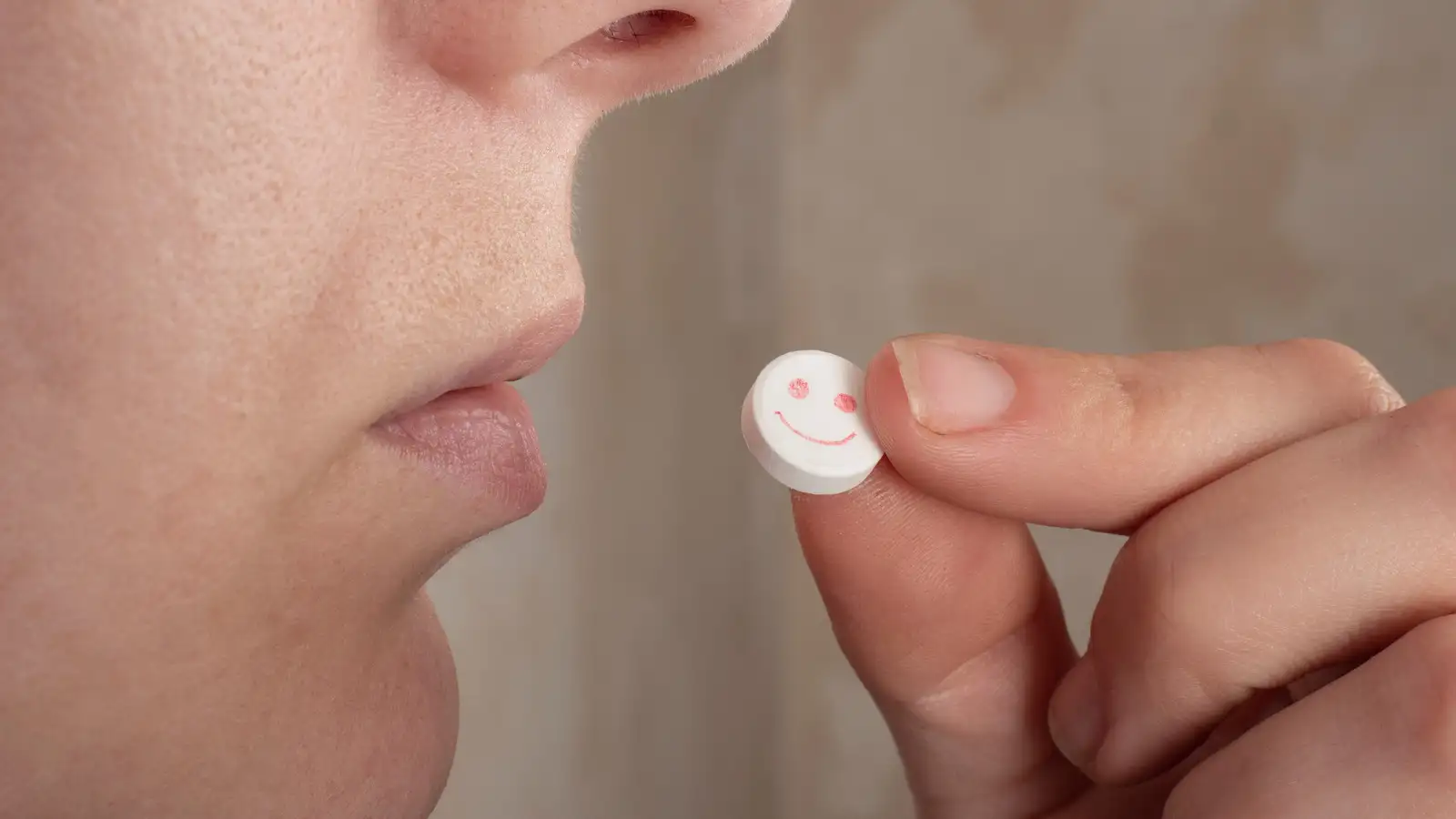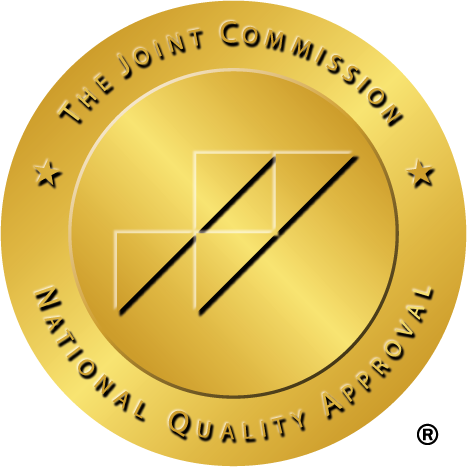Table of Contents
- What Is Adderall®?
- How Adderall® Works
- Side-Effects of Adderall®
- What Interacts with Adderall®: Drug Interactions
- What Interacts with Adderall®: Vitamin and Supplement Interactions
- What Interacts with Adderall®: Food and Drink Interactions
- What Interacts with Adderall®: Disease and Disorder Interactions
- What Interacts with Adderall®: Preventing Negative Interactions
- Recommended Adderall® Dosage
- Discover Adderall® Treatment With The Region’s Premier Treatment Center
A common question is what interacts with Adderall®? Adderall® is a common central nervous system stimulant frequency prescribed by healthcare professionals to treat ADHD and narcolepsy in adults and children. But, it has a long list of interactions with other medications, foods, and supplements. So, while we’ll get into what interacts with Adderall®, we’ll also define the drug and explore more about it.
What Is Adderall®?
It’s a Food and Drug Administration (FDA)-approved, Schedule II drug used to treat Attention Deficit Hyperactivity Disorder (ADHD) and narcolepsy. Adderall® is the brand name for amphetamine/dextroamphetamine and is in the stimulants class for prescription drugs.
How Adderall® Works
At the core, Adderall® is made up of two central nervous system (CNS) stimulants, amphetamine and dextroamphetamine. Inside the brain, these stimulants act the same as dopamine, epinephrine, and norepinephrine, neurotransmitters that occur naturally.[1] These specifications can directly influence what interacts with Adderall®.
Since dopamine provides a reward inside your brain, Adderall® reduces the usual distractions caused by the reward, like the ping of an incoming text message. Simultaneously epinephrine causes your body to go into fight-or-flight mode and makes you feel more alert and focused. The norepinephrine stays inside your brain’s synapses longer than without Adderall®, which keeps the fight-or-flight response.
Side-Effects of Adderall®
Aside from what interacts with Adderall®, and as with other stimulant medications, Adderall® does have side effects with short- and long-term use. Common physiological effects include
- Hyperexcitability;
- Improved mental aptitude;
- Increased physical energy; and
- Mood elevation.
Short-term effects, which depend on the dosage amount, include
- Altered sexual desire or performance;
- Chest pain;
- Constipation or diarrhea;
- Difficulty falling asleep or interrupted sleep;
- Dizziness;
- Dry mouth;
- Increased heart rate;
- Weight loss related to loss of appetite.
More serious side effects can include
- Abnormal heart rhythms or palpitations;
- Nerve cell damage;
- Psychosis;
- Seizures;
- Stroke; and/or
- Sudden death.
Signs and Symptoms of Adderall® Withdrawal
If you or a loved one has been using Adderall® for any length of time, the withdrawal symptoms can be just as worrying as what interacts with Adderall® and generally start with a one to two-day crash and then a longer period of symptoms, including
- Agitation and/or irritability,
- Body aches and/or pains;
- Confused thoughts;
- Depression;
- Emotional outbursts;
- Fatigue or sleeping for long periods of time;
- Increased appetite;
- Lucid or unpleasant dreams;
- Slowed reactions and movements; and/or
- Unmanageable body movements and twitching.
The severity of withdrawal symptoms for yourself or a loved one depends on how long they used Adderall®; how much and how often they used the drug; gender, age, and weight; and if other substances were used at the same time.
What Interacts with Adderall®: Drug Interactions
So, what interacts with Adderall® exactly? Although Adderall® has nearly 200 known drug interactions, we’ll discuss how the use of the prescription drug affects the function of several other common over-the-counter and prescription medications. One example of what interacts with Adderall® is how monoamine oxidase inhibitors (MAOIs) slow Adderall® metabolism, which means you or a loved one won’t receive the full effects of the medication.[2]
Wellbutrin and Adderall®
Wellbutrin, also known as bupropion, and Adderall® can cause major interactions and side effects when used at the same time. Wellbutrin may increase the levels of Adderall® in the bloodstream, which in turn may increase other side effects. Seizures are a known effect, especially if you or a loved one are undergoing alcohol or substance use withdrawal, have a history of seizures, or have a medical condition that affects the central nervous system.
Prozac and Adderall®
Prozac is a common prescription drug used to treat certain disordered eating, depression, obsessive-compulsive disorder, and panic attacks. The combination of Prozac, also known as fluoxetine, and Adderall®, can cause anxiety, jitteriness, nervousness, racing thoughts, and restlessness.
The two medications can also cause a rare but serious medical condition called serotonin syndrome.[3] Symptoms include blurred vision, confusion, extreme blood pressure changes, increased heart rate, muscle spasm or stiffness, and/or tremor. Unless treated, the symptoms could progress to coma or death.
Lexapro and Adderall®
Lexapro, also known as escitalopram, and Adderall® have major interactions when used simultaneously. Lexapro might increase the effects of Adderall® and cause side effects similar to or the same as Prozac and Adderall®, including anxiety, jitteriness, nervousness, racing thoughts, and restlessness. This combination has also been linked to serotonin syndrome.
Zoloft and Adderall®
Zoloft, or sertraline, and Adderall® generally cause serious interactions when used at the same time. Zoloft can increase the effects of Adderall® and trigger side effects the same as or similar to other antidepressants.
Adderall® and Ritalin
Although there aren’t any known interactions between Adderall® and Ritalin, it’s important to speak with your doctor or healthcare provider about using these prescription medications. Both are stimulants and, if used together, may cause a serious overreaction by your or a loved one’s central nervous system. The reaction may trigger serious or life-threatening side effects and medical conditions.
Tylenol and Adderall®
Currently, no known interactions have been found between Tylenol, also known as acetaminophen, and Adderall®.
Gabapentin and Adderall®
Gabapentin is used to control types of epileptic seizures. While it has no known interactions with Adderall®, keep in mind Adderall® use can increase the risk of seizures. Talk to your doctor or healthcare provider before using these medications at the same time.
Tramadol and Adderall®
Tramadol helps alleviate moderate to moderately severe pain and is an opiate analgesic medication. Because it affects how your brain and the nervous system respond to pain, it has major interactions with Adderall®, such as an increased risk of seizures.
Benadryl and Adderall®
Benadryl, or diphenhydramine, is a common over-the-counter medication used to treat allergies. It has no known interactions when used at the same time as Adderall®.
Effexor and Adderall®
Effexor, or venlafaxine, is a prescription medication used to treat depression. As with similar medications, Effexor interacts with Adderall®; consult with your doctor or healthcare provider before using these medications together.
Hydroxyzine and Adderall®
When it comes to what interacts with Adderall®, Hydroxyzine may not be one of them. Hydroxyzine is an antihistamine used to treat allergic skin reactions or anxiety and tension in adults and children. It currently has no known interactions with Adderall® but speak with your doctor or healthcare provider if you experience any side effects.
Cymbalta and Adderall®
If you’re wondering what interacts with Adderall® with potential serious side effects, Cymbalta, or duloxetine, and Adderall® have major interactions when used simultaneously. The side effects are the same as or similar to the interaction effects of other antidepressants and should be reported to a doctor or healthcare provider immediately.
Phentermine and Adderall®
Phentermine is a prescription medication used to help adults who are obese or overweight with weight-related medical issues lose weight and keep the weight from returning. Currently, it has no known interactions with Adderall®.
Abilify and Adderall®
Abilify, also known as aripiprazole, is a prescription antipsychotic medication used to treat manic depression and schizophrenia in adults. It can also treat Tourette’s disorder for children six years or older. Abilify has no known interactions with Adderall®.
Adderall® and Antacids
Antacids, also called calcium carbonate, are common over-the-counter medications used to treat acid reflux. They cause moderate interactions with Adderall®, including increasing the absorption rate of Adderall®. It may lead to aggressiveness, diarrhea, irregular heartbeat, rapid breathing, and seizures.
What Interacts with Adderall®: Vitamin and Supplement Interactions
ashwagandha and Adderall®
An evergreen shrub, ashwagandha is often used to treat stress. It currently has no known interactions with Adderall®.
Vitamin C and Adderall®
Vitamin C, or ascorbic acid, has a moderate interaction with Adderall®. It reduces the amount of Adderall® in your bloodstream, which can make the medication less effective. This includes Vitamin C supplements and foods or drinks with naturally high levels of the vitamin.
St. John’s Wort and Adderall®
St. John’s wort is a plant used for a range of medical conditions, including ADHD, depression, and menopausal symptoms. It has no known interactions with Adderall® when used simultaneously.
What Interacts with Adderall®: Food and Drink Interactions
Alcohol and Adderall®
If you’re wondering what interacts with Adderall®, Alcohol is definitely one of them. Alcohol and Adderall® have serious interactions as Adderall® dulls the effects of alcohol. This can lead you or a loved one to drink more alcohol before you feel intoxicated, raising the risk of alcohol poisoning. On the other hand, alcohol lessens the effectiveness of Adderall® and may worsen ADHD symptoms.
Adderall® and Coffee
Adderall® and coffee have moderate interactions because of each one’s properties as stimulant. Small amounts of coffee generally won’t cause side effects, but large amounts can lead to high blood pressure, increased heart rate, jitteriness, and trouble sleeping.
Adderall® and Breastfeeding
Studies have found breastfeeding people can take Adderall® while heeding dosage limitations. Yet, the medication may pass to the infant through breast milk, and its effects are generally unknown. Speak with your doctor or healthcare provider if you or a loved one are breastfeeding while using Adderall®.
What Interacts with Adderall®: Disease and Disorder Interactions
Adderall® is noted to cause minor to major interactions with many diseases, disorders, and medical conditions. Speak with your doctor or healthcare provider if you or a loved one have or have had any of the following:
- Bipolar disorder
- Cardiovascular or circulatory problems
- Glaucoma
- Heart attack
- Heart disease
- High blood pressure or hypertension
- Hyperthyroidism
- Mental health conditions, including psychosis
- Tourette’s syndrome or a tic
- Urinary issues
What Interacts with Adderall®: Preventing Negative Interactions
It’s strongly recommended to work with a doctor or healthcare provider for medical advice about avoiding negative interactions and Adderall®. The provider reviews your medical history and current conditions before prescribing other medications.
Recommended Adderall® Dosage
So that you don’t impact what interacts with Adderall®, only take Adderall® as directed by your physician. Don’t make any changes to your scheduled dosing without first consulting your doctor.
Adderall® Dosage Recommendation for ADHD
Oral Dosage Form (Adderall® XR® extended-release capsules)
- Adults: 20 milligrams once a day, in the morning.
- Children 13 to 17 years old: 10 milligrams per day in the morning to begin.
- Children 6 to 12 years old: 10 milligrams per day in the morning to begin, but no more than 30 milligrams per day.
- Children under 6 years old: Use and dose determined by their doctor.
Oral Dosage Form (Mydayis® extended-release capsules)
- Adults: 12.5 milligrams once a day, immediately after waking up, but no more than 50 milligrams per day.
- Children 13 to 17 years old: 12.5 milligrams per day in the morning to begin, but no more than 25 milligrams per day.
- Children 12 years old and younger: Use and dose determined by their doctor.
Oral Dosage Form (Adderall®® tablets)
- Adults and children over 6 years old: 5 milligrams 1 to 2 times per day to begin.
- Children 3 to 5 years old: 2.5 milligrams once a day.
- Children 3 and younger: Not recommended for use.
Adderall® Dosage Recommendation for Narcolepsy
Oral Dosage Form (Adderall®® tablets)
- Adults and children over 12 years old: 10 milligrams per day, divided and used in 2 doses.
- Children 6 to 12 years old: 5 milligrams per day.
- Children 6 years old and younger: Use and dose determined by their doctor.
Discover Adderall® Treatment With The Region’s Premier Treatment Center
If you or a loved one have an Adderall® use disorder, there are treatment options to break the cycle of dependency. New Waters Treatment Center is here to help you or your loved one with comprehensive inpatient and outpatient treatment in a supportive environment. Contact us today.
Frequently Asked Questions About What Interacts with Adderall®
Sources
[1]Sumners, C. (2022, January 19). You asked: What does Adderall® do to your body? Vital Record. Retrieved January 17, 2023, from https://vitalrecord.tamhsc.edu/you-asked-what-does-Adderall®-do-to-your-body/
[2]Israel, J. A. (2015, December 10). Combining stimulants and monoamine oxidase inhibitors: A reexamination of the literature and a report of a new treatment combination. The primary care companion for CNS disorders. Retrieved January 18, 2023, from https://www.ncbi.nlm.nih.gov/pmc/articles/PMC4805402
[3]Volpi-Abadie, J., Kaye, A. M., & Kaye, A. D. (2013). Serotonin syndrome. The Ochsner journal. Retrieved January 17, 2023, from https://www.ncbi.nlm.nih.gov/pmc/articles/PMC3865832/
New Waters Recovery Editorial GUIDELINES
At New Waters Recovery, we take your health and wellness seriously. We have a thorough process in place to ensure the integrity of information that is displayed on our website. All content published to our site undergoes a rigorous medical review by a doctorate level clinician to ensure medical accuracy. Read More About Our Process







